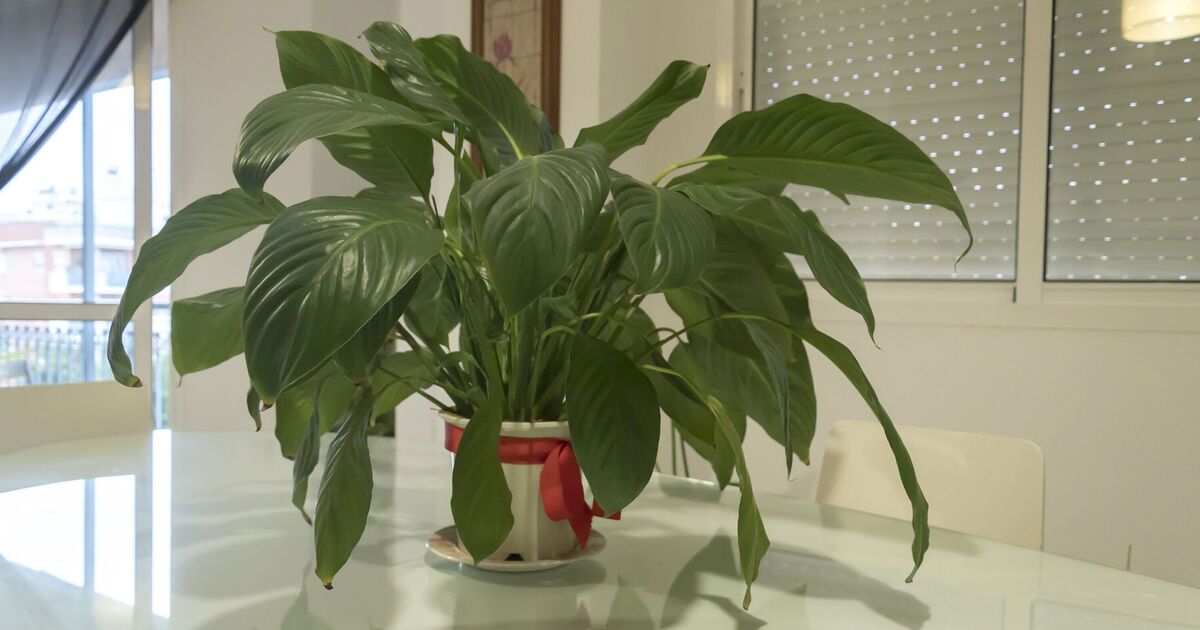Many people buy a peace lily when the white spathes are on show, but once the flower-like spathes brown and wilt, you may be left with the green foliage for a long time.
The next time any peace lily is due to bloom is in spring, but the way you look after it now will impact whether the plant will produce new blooms or not.
Plant expert Monique Kemperman, on behalf of The Joy of Plants, told Express.co.uk the best conditions for a peace lily to bloom.
“If you want your peace lily to show off those gorgeous white blooms in spring, winter is the time to give it some tender loving care.” Monique added: “Peace lilies like warm and a bit humid conditions, ideally between 18C and 24C.
“If your home feels dry due to central heating, try using a humidifier or placing the pot on a tray of pebbles with water to boost humidity around the plant.”
Other factors also play a key part in increasing the likelihood of fresh blooms in spring. “Peace lilies don’t mind low light but will bloom better in bright, indirect light,” said Monique.
“During winter, move your plant to a well-lit spot… just make sure it’s not in direct sunlight, which can scorch the leaves.”
As for watering, you should only water the peace lily during winter “when the top of the soil feels dry”.
Monique added: “Make sure the pot drains well; overwatering can lead to root rot, so err on the side of caution.”
The expert also highlighted the need for fertiliser, but growth is “slow” in winter, so not too much is needed. Monique clarified: “Peace lilies slow down growth in winter, so they don’t need much feeding.
“A light dose of diluted, balanced liquid fertiliser every six to eight weeks is plenty. This gives them the nutrients they need to gear up for blooming in spring.”
Also, it’s critical to “hold off repotting until early spring”. Monique explained: “Repotting now can stress it when it’s not actively growing.”
Trimming away any yellow or dead leaves is also important to maintain the plant’s overall well-being. “Gently wipe the leaves with a damp cloth to remove dust, allowing them to absorb more light effectively,” Monique said.












